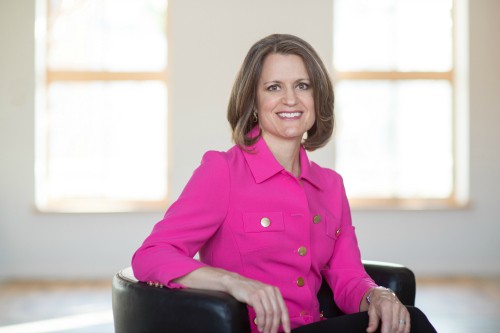Inspiring Money Story: Are you putting off “what if”?
(This page may contain affiliate links and we may earn fees from qualifying purchases at no additional cost to you. See our Disclosure for more info.)
Inspiring Money Stories: Doris
1. Introduce Yourself to the WwM Readers!
My name is Doris Belland, and I’m a financial literacy educator, and author of the book Protect Your Purse, Shared Lessons for Women: Avoid Financial Messes, Stop Emotional Bankruptcies, and Take Charge of Your Money.
I ended up in my personal finance business through unconventional circumstances.
In my twenties, I was a doctoral student doing fully-funded research. I was on track to become a university professor. Then life happened.
My first husband had cancer. When the disease progressed to the point that he required emergency surgery to remove tumors from his spine, I took what I thought would be a one-year leave of absence to support him through his treatments.
I never went back to my studies. My husband died six years later. On top of the emotional trauma, I was left with his dying business and $400,000 of debt. I paid off the debt within two years and began the process of rebuilding my life.

First, I developed a real estate portfolio of buy-and-hold properties. I then built a Rent to Own business, which helped families address financial challenges, and two years ago, I created Your Financial Launchpad, a company dedicated to helping women grow their financial knowledge and confidence.
2. Did you have a big “aha” moment related to your finances? What’s one money mistake you have made that others can learn from?
A few years after I finished paying off my large, inherited debt, I sat down to think about what had just happened. How, I wondered, could a well-educated, Type-A personality, goal-oriented woman end up being so vulnerable? How is that possible? Was it just me or had this happened to other women?
I set out in search of answers. I reached out to thirty-eight divorcees and widows to ask them about their experiences. Were they vulnerable after their trauma? What would they do differently, and did they have advice they would pass on to other women?
The answer was a resounding yes on all counts. Yes, most of them found themselves in difficult situations with few good options, and they certainly had advice to pass along.
What it boiled down to for them and me, is the fact that women, overall, are financially vulnerable. It’s what we don’t know that can hurt us the most.
Many of us put off asking difficult “what if” questions because we believe that life will never happen to us. Our marriage is strong; there’s no way we’ll get a divorce. Our spouse is in great shape. There’s no way he’ll die suddenly, without warning.
Except that it doesn’t work that way. Every single woman I interviewed, without exception, did not see the trauma coming. We rarely do. We continue with the comforting belief that these awful situations happen to others.
Others lose their jobs, not us.
Others are diagnosed with serious diseases, not members of our family.
Other husbands leave their wives, not ours.
Other partners are killed or drop dead, not ours.
The reality is that life happens to us all at some point. The good news is that setting up a strong, financial foundation that allows us to have options, regardless of what life sends our way, is neither complicated nor difficult.
It’s uncomfortable to entertain the what-ifs of life and to put some protective measures in place, but the resulting peace of mind when we do tackle them is priceless.
3. What do you think is one of the most difficult money or career challenges for women?

What I’ve seen most often in more than ten years of working with families is the abdication of financial responsibility. That is, women tend to rely on the men in their lives when it comes to finances on the mistaken assumption that the men will do a better job. This is particularly true when it comes to investing.
Our lack of financial confidence is hampering our ability to create a solid financial foundation, and it’s contributing to the already-large wealth gap between men and women.
According to Mariko Lin Chang, a US-based researcher, women have less than half the wealth that men have. This is a significant issue for women since wealth tends to be an indicator of financial resilience.
This is why helping women grow both their financial literacy and their confidence is at the root of my company’s mission statement.
4. How would you help a good friend who struggles with money?
I would take the same approach that I teach in my Women’s Money Group. First, I would start by helping my friend identify their money habits, patterns, and beliefs. You need to understand what you’re doing and why before you can fix anything.
Money issues are rarely just about money; they’re about emotions, our past experiences, and our upbringing.
Second, I would help them determine their top five values, so that they can create a values-based spending and saving plan. Budgeting is a chore but creating a spending plan that supports your values is empowering.
It quickly becomes evident with a values-based approach that credit card debt, or corrosive debt of any kind, isn’t congruent with anyone’s goals and values.
Finally, I would encourage them to grow their skills and income. There’s a great book that I recommend to everyone: So Good They Can’t Ignore You, by Cal Newport.
Growing your income can have a transformative effect on your life, and it starts by developing skills and/or products that are in-demand.
5. Is there anything else you’d like to share with our Women who Money readers?
If you are married or have a partner, set up a meeting once a month to talk about money. Open a nice bottle of wine, or whatever you enjoy, get a sitter for the kids so that you have the space to talk openly without interruption, and talk about your finances.
Where are you at? What are your goals, both personal and for the family? Are there any challenges that need to be addressed? What’s the best way to tackle the problem spots?
Go in with an open mind and focus on strengthening the “team.” Learn about the areas that your partner is overseeing so that you are familiar with the whole picture. This step alone can make a huge difference to your outcome.
Remember that money is a tool, not a taboo subject. Mastering this important tool is simply a matter of awareness and practice.
The WwM Team’s Key Takeaways from our Interview with Doris:
- Any woman can end up in a really difficult financial situation
- Peace of mind is worth the difficult work of considering all of the “what ifs”
- Women can’t leave their financial decisions to a partner or spouse; They need to understand money and how to build wealth
- Values-based spending and savings is motivating
- Meet with your partner about money often with a strengths-based focus
Thanks for sharing your incredible story with our readers, Doris! You can find Doris on her site, Your Financial Launchpad, on Facebook, or on Twitter.
Books Mentioned:




